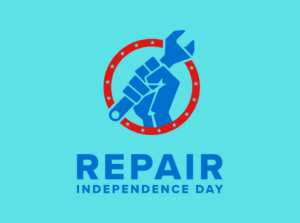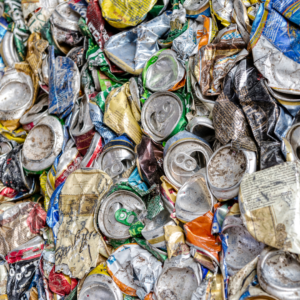Plastic grocery bags are everywhere, they provide convenience and portability for our purchases and they are lightweight and inexpensive for stores to hand out. They are also blowing around parklands, floating in our oceans, hanging from trees, filling up our landfills, and interfering with our recycling efforts.
Plastic Grocery Bags Are Not Accepted in Curbside Recycling Programs.
But why can’t they be recycled curbside? It might appear counterintuitive that something so prevalent can’t be recycled alongside other plastic materials. The primary reason behind this lies in the characteristics of plastic grocery bags and the intricacies of recycling facilities’ sorting processes. Plastic grocery bags are primarily made from low-density polyethylene (LDPE), a stretchable and flexible plastic. This material isn’t easily recyclable through traditional curbside recycling processes for several reasons:
Mechanical issues: Plastic bags are lightweight and can get caught in recycling machinery, degrading the effectiveness of the sorting process and causing potential breakdowns. This not only disrupts the recycling process but can also be dangerous for workers at recycling facilities. At Eureka, we spend at least two hours every day cutting plastic bags out of our machinery.
Sorting Complexity: Facilities like Eureka Recycling are designed to sort and process common recyclables like paper, cardboard, glass, and specific types of plastic containers. We sort by size, weight, and shape. The thin, flexible nature of plastic bags makes them hard to sort—they mimic paper. Even if plastic bags manage to pass through the system without entangling machinery, they end up contaminating paper.
Recycling Market Demand: Plastic bags have limited demand in recycling markets compared to other materials. The cost and energy required to recycle them often outweigh the benefits.
For more data on the recyclability of plastic film, see Eureka’s 2022 Film Capture Study.
What Should You Do with Plastic Grocery Bags?
There are several eco-friendly options for their proper disposal and reuse:
- Reduce or Eliminate Usage: The best approach to plastic bags is reducing or avoiding their use entirely. Bring reusable bags when shopping to minimize the need for plastic ones.
- Store Drop-Off Recycling: Many grocery stores and retailers have collection bins specifically for plastic bags. These bins ensure that the bags are properly managed and sent to facilities equipped to handle them.
- Reuse: Before discarding a plastic bag, consider reuse. They work well as trash can liners, carriers, or even packing material.
- Upcycling: Unleash your creativity! Plastic bags can find new life in craft projects, weaving, or even as durable outdoor cushions.
While plastic grocery bags challenge curbside recycling programs, responsible disposal and reduction strategies can alleviate their environmental impact. Opting for reusable bags, recycling at store drop-off locations, and repurposing plastic bags can all contribute to reducing plastic pollution and advancing toward a Zero Waste future.
Share this Story!

Repair Independence
It is Time to Assert Your Right to Repair Your Own Stuff! On July 1st, the Digital Fair Repair Act

Minnesota Passes Extended Producer Responsibility for Packaging
Minnesota just became the fifth state to pass Extended Producer Responsibility (EPR) for Packaging. The Packaging Waste & Cost Reduction

Strengthening the Economy and Environment Through Aluminum Recycling
The Importance of Aluminum Recycling Although aluminum is the most abundant element in the earth’s crust and the third most

Testimony: Packaging Waste & Cost Reduction Act (SF3561)
“I cannot stress enough that we cannot recycle and compost our way out of the packaging crisis. We need a
